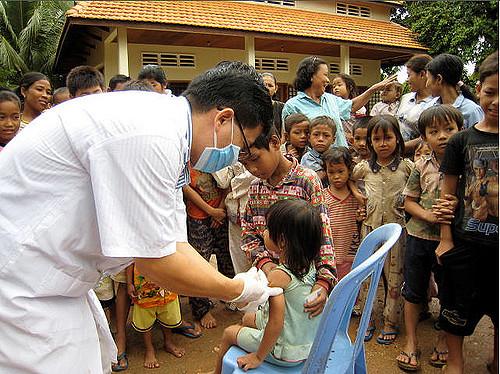The World Health Organization (WHO) said today that while effective treatment and vaccines exist against viral hepatitis, deaths from the disease are increasing around the world.
These findings and more are described in the WHO's Global Hepatitis Report, which, for the first time, provides estimates for viral hepatitis cases in 2015, and sets the guideline for eradication goals by 2030.
According to the report, 325 million people, or roughly 4% of the world's population, lives with viral hepatitis, and the disease causes 1.34 million deaths per year. That number is comparable to HIV, tuberculosis, and malaria. But unlike those diseases, deaths from viral hepatitis are increasing, not declining: Since 2000, deaths from viral hepatitis increased by 22%.
"For the first time in the history of viral hepatitis, we have an understanding of the true impact of the disease." said Charles Gore, president of the World Hepatitis Alliance, in a press release. "WHO's Global Hepatitis Report provides us with new data and a set of very specific, global and regional targets to reach by 2030—for instance global deaths from hepatitis must be brought down from 1.34 million to lower than 469,000 people per year.”
The report focuses on strategies to help limit hepatitis B and C, two of the five types of hepatitis infections. According to the WHO, hepatitis B and C are responsible for 96% of overall hepatitis mortality.
Hep B infections declining
Though deaths from viral hepatitis are increasing, the report said new infections are on the decline, largely in part because of newborn vaccination against hepatitis B. In 2015, 84% of children born received the three recommended doses of hepatitis B vaccine. Some countries, such as China, have achieved coverage rates of 96%.
The WHO identified several hepatitis B "hot spots," with the Western Pacific region and Africa reporting most of the new cases.
There is no vaccine for hepatitis C, but there great strides have been made in making treatments affordable and accessible. The disease can be cured with a 3-month course of direct-acting antivirals. But currently only 1% of people living with hepatitis C have access to affordable treatment.
The WHO said the Eastern Mediterranean region, the European region, and the African region account for most of the world's hepatitis C cases, adding that the virus is still primarily transmitted via needle sharing and unhygienic healthcare practices.
The report highlights some countries that have managed to lower the costs of the daily medicines needed to treat the virus. In Egypt, generic competition reduced the price of a 3-month treatment for hepatitis C, from $900 in 2015, to less than $200 in 2016. In Pakistan, the same course costs as little as $100.
"More countries are making hepatitis services available for people in need—a diagnostic test costs less than US $1, and the cure for hepatitis C can be below US $200. But the data clearly highlight the urgency with which we must address the remaining gaps in testing and treatment," said Gottfried Hirnschall, MD, director of WHO's Department of HIV and the Global Hepatitis Program.
See also:
Apr 21 WHO report
Apr 21 World Hepatitis Alliance press release
Apr 21 WHO hepatitis report media release




















